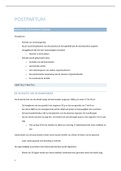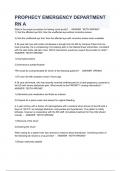Exam (elaborations)
Fluids, Electrolytes, and Introduction to Acid-Base Balance Chapter 29 with Verified Solutions
- Course
- Institution
Fluids, Electrolytes, and Introduction to Acid-Base Balance Chapter 29 with Verified Solutions What is the primary function of electrolytes in the body? To help maintain fluid balance and facilitate nerve and muscle function How do kidneys help regulate fluid and electrolyte balance? ...
[Show more]












